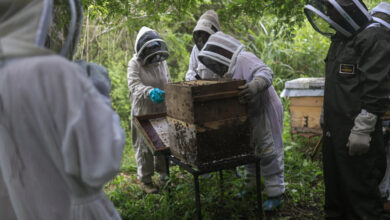World Kidney Day: An Organ To Take Care Of
Kidney disease can be prevented. It is important to be alert to any abnormality or discomfort that you feel with the functioning of the kidney, and if they work regularly since life can be in danger if the toxins remain in the body.

The Woman Post | Ana Suárez
Listen to this article
March 11 is World Kidney Day, a date dedicated to this important organ for the body, as a campaign that seeks to alert and prevent kidney disease. And in this sense, since 2006, the International Society of Nephrology and the International Federation of Kidney Foundations, join forces, alongside other organizations and foundations to launch their voice of alert in order to raise awareness about possible diseases that can be contracted.
Dr. Yenni Báez points out that the functioning of the kidneys is vital because they filter toxins and eliminate all kinds of waste and excess fluid. They are the size of a fist and are located on both sides of the spine. They are also responsible for regulating the amount of water and electrolytes such as sodium and potassium in the blood, eliminating them through the urine when there is excess.
Healthy Kidneys
Yenni Báez Suárez is a kidney transplant surgeon, former President of the Colombian Association for Organ Transplantation (ACTO), a tenured professor of surgery at the Universidad del Rosario School of Medicine, and has spent many years caring for and ensuring the kidney health of her patients. In addition, she is a board-certified kidney transplant surgeon.
On the occasion of International Kidney Day, Dr. Báez stressed that “the kidney has many functions that have to do with the body's metabolism. Likewise, it produces the hormone Erytoproyectin, responsible for controlling anemia.” This organ, according to the specialist, is just as important as the heart or the brain, because "without them, we cannot live."
But how is Colombia doing in terms of kidney transplantation? For Dr. Báez and from the point of view of infrastructure and capacity, there are specialized doctors. "We are very well and it is comparable to what is done in Europe, the United States and the rest of the world," but it is important to clarify that kidney transplantation or any organ requires a patient who needs it, but in Colombia, there is a shortage of organs, and for this reason, the kidney transplants that should be done per million inhabitants have not been done in our country.
The role of a woman is very important because she is the axis of the family in many cases and is the first example that children have. "As women, we can be multipliers and an example of good eating habits to maintain a good lifestyle."
Also read: OUR EATING HABITS DURING THE QUARANTINE
One of the professional's recommendations to prevent kidney and other diseases is to go to the doctor every year. She adds that many times women think they are superwomen and are aware of everything, so much so that "we are always the last, and it is best to take a space to attend medical check-ups because through these we can detect some diseases," because many times it is late and it is very difficult to recover the function of the kidneys.
Transplantation, The Best Option
It is important to clarify as Dr. Yenni Báez says, that kidney diseases are not hereditary, but there are some exceptions. Special attention must be paid to patients who have established underlying diseases such as hypertension and diabetes and other types of disorders.
“Kidney disease is not hereditary, it affects all ages. When it occurs in children, it is because there is a congenital pathology. But most of these anomalies are acquired.”
What then would those warning symptoms be? In this regard, the expert doctor responds that it is weight gain, swelling, changes in the urine, in any case, the important thing is prevention because it is a disease that has treatment and there are two options, the first is transplantation renal, which was discovered more than 70 years ago.
Kidney transplantation is the best treatment option for any patient with end-stage renal disease, that is when the kidneys cannot give more. And for this, you need a living or dead donor, and in this sense, it is important to raise awareness about donation, because an organ donor can benefit more than 56 patients.
The other option is dialysis and it is a process in which waste is removed that the kidneys cannot eliminate by themselves.
Finally, the message for women from this professional is that “she is the example at home, and therefore she must take care of herself, as well as take care of others. It is important to control your diet, eat fruits, vegetables, a diet low in sugar and salt, and try to avoid processed foods and sausages because they have a very high sodium content. They can be consumed, but in moderation.”




